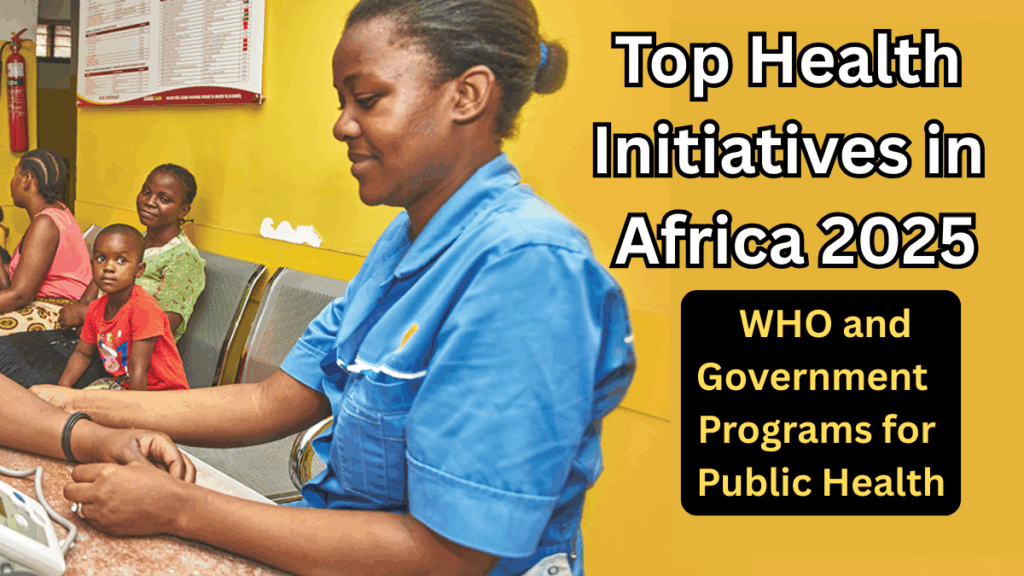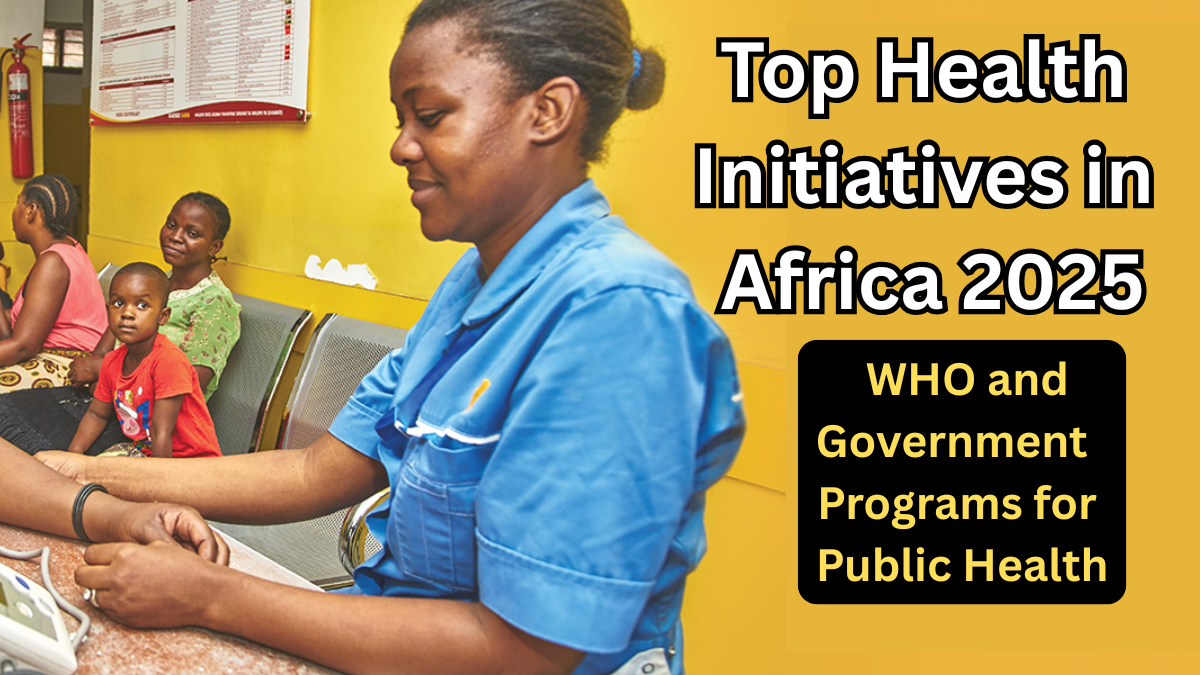In 2025, Africa is witnessing a significant transformation in its healthcare systems. With stronger government support and increased WHO collaborations in Africa, new strategies are being implemented to ensure access to quality healthcare for all. These African Health Initiatives 2025 are not only focusing on disease control but also on improving preventive care, maternal health, and healthcare infrastructure.

Why Are These Health Initiatives Important?
Africa faces unique health challenges, including infectious diseases, maternal and child health concerns, and limited access to healthcare facilities in rural areas. The African Health Initiatives 2025 aim to bridge these gaps by:
-
Strengthening healthcare infrastructure
-
Improving vaccination programs and disease prevention
-
Enhancing maternal and child health services
-
Expanding access to clean water and sanitation
-
Increasing awareness about nutrition and lifestyle diseases
Key Focus Areas of African Health Initiatives 2025
Strengthening Healthcare Infrastructure
Governments are working closely with WHO collaborations in Africa to build new hospitals, improve primary healthcare centers, and provide essential medical equipment in underserved areas.
Combating Infectious Diseases
A renewed focus is being placed on:
-
Eradicating polio and measles
-
Expanding HIV/AIDS prevention and treatment
-
Strengthening malaria and tuberculosis control programs
Maternal and Child Health Programs
Improving maternal and child health remains a priority:
-
Access to prenatal and postnatal care
-
Training for midwives and healthcare workers
-
Increasing immunization coverage
Mental Health and Well-being
Mental health is now a major component of African Health Initiatives 2025, with programs offering counseling, awareness campaigns, and community-based mental health services.
WHO Collaborations in Africa – Driving Change
The WHO collaborations in Africa are playing a crucial role in achieving these goals by:
-
Providing technical expertise and funding
-
Conducting large-scale vaccination campaigns
-
Supporting emergency health response systems
-
Training healthcare professionals across the continent
Major Programs at a Glance
Here’s a quick look at some key health programs:
| Program | Focus Area | Partners |
|---|---|---|
| Expanded Immunization Plan | Vaccination for children | WHO, UNICEF, Local Govts |
| Malaria Elimination Drive | Vector control & treatment | WHO, Global Fund |
| Maternal Care Access 2025 | Prenatal & postnatal care | WHO, National Ministries |
| Mental Health Outreach | Community-based counseling | WHO, NGOs |
Impact of These Initiatives
These programs are expected to:
-
Reduce child mortality rates significantly
-
Improve life expectancy across African nations
-
Strengthen healthcare resilience against future pandemics
-
Create more trained healthcare professionals to serve communities
Looking Ahead
With stronger WHO collaborations in Africa and focused government strategies, 2025 is set to mark a turning point in public health. These initiatives are not just about treating illnesses but building healthier, stronger communities for the future.
FAQs
Q1. What are African Health Initiatives 2025?
These are collaborative programs by African governments and international organizations like WHO aimed at improving public health, expanding healthcare infrastructure, and preventing major diseases.
Q2. How is WHO helping Africa achieve these health goals?
Through WHO collaborations in Africa, the organization provides funding, technical expertise, training, and emergency health response support.
Q3. Which diseases are prioritized in these programs?
The initiatives focus on eradicating polio, controlling malaria, HIV/AIDS prevention, tuberculosis treatment, and managing non-communicable diseases.
Q4. How will these initiatives impact rural communities?
They aim to provide better access to hospitals, trained health workers, clean water, and essential vaccination programs, especially for remote and underserved regions.
Click here to learn more
